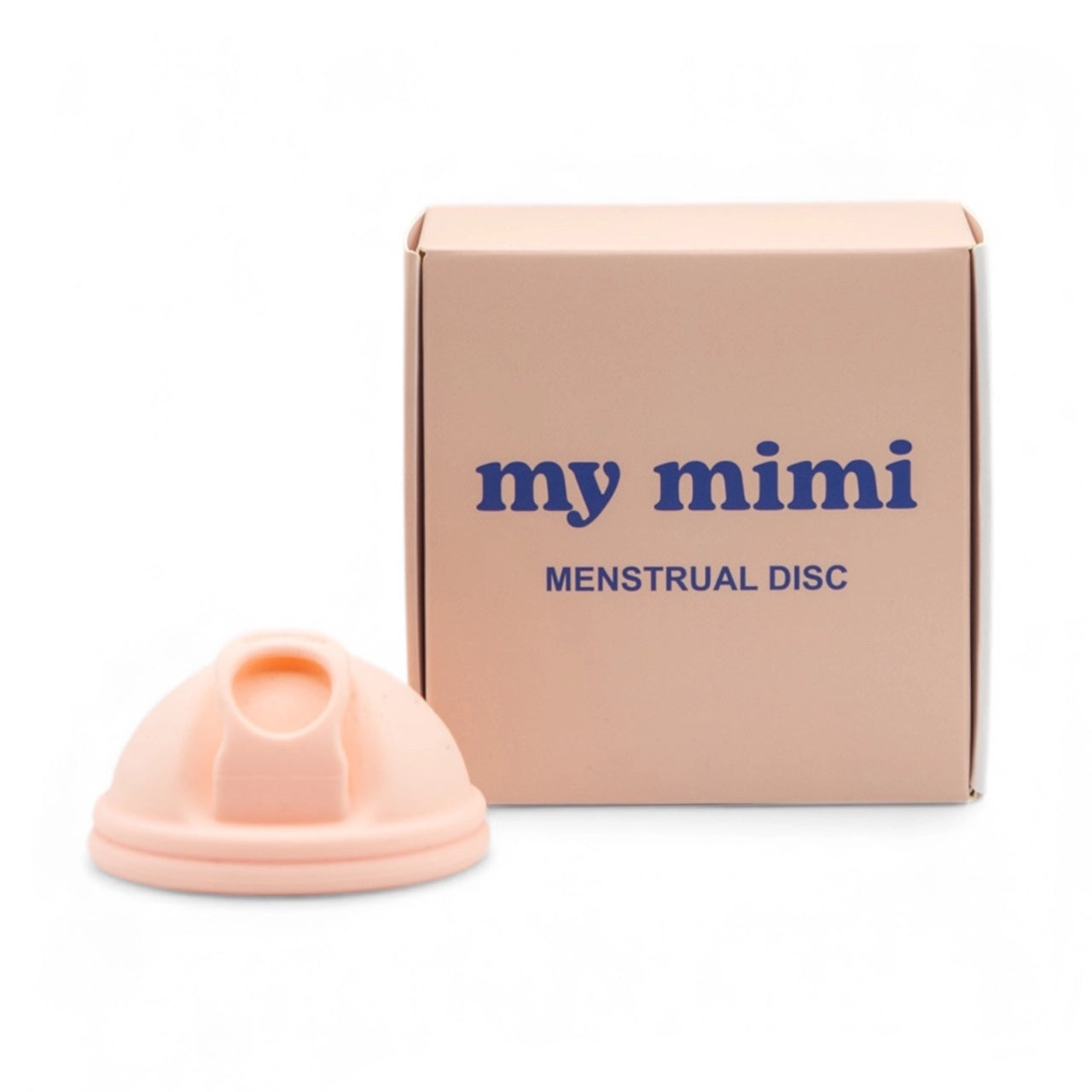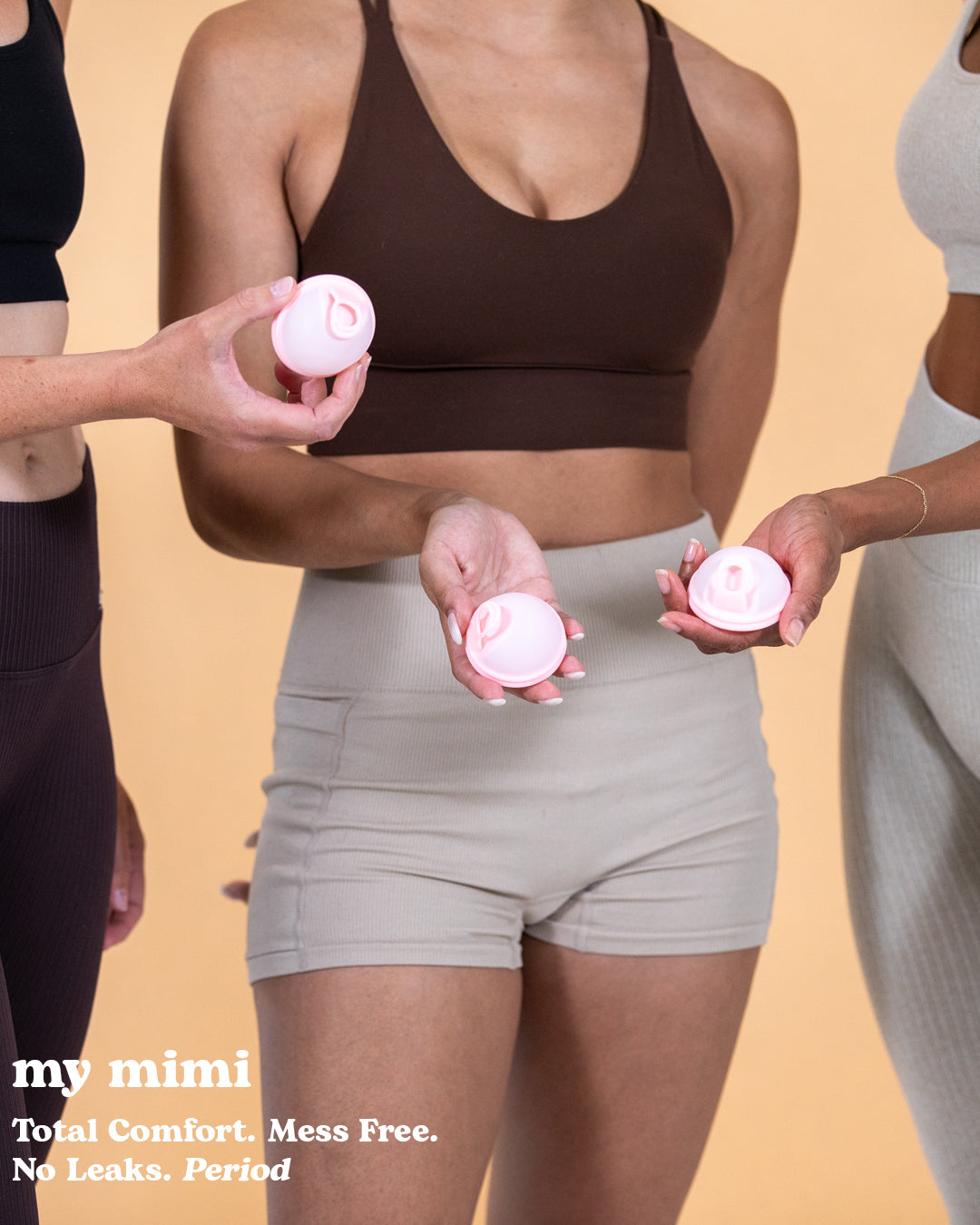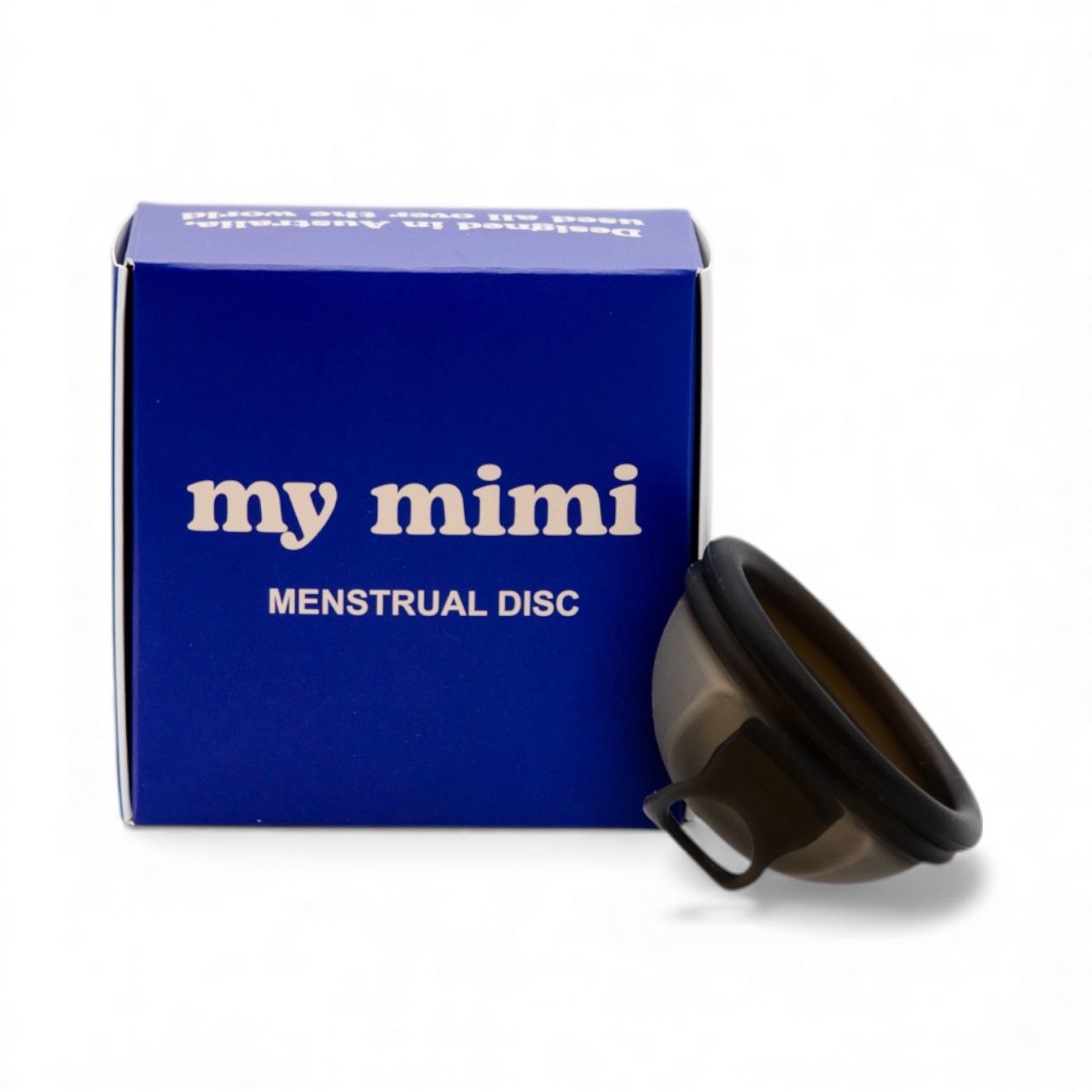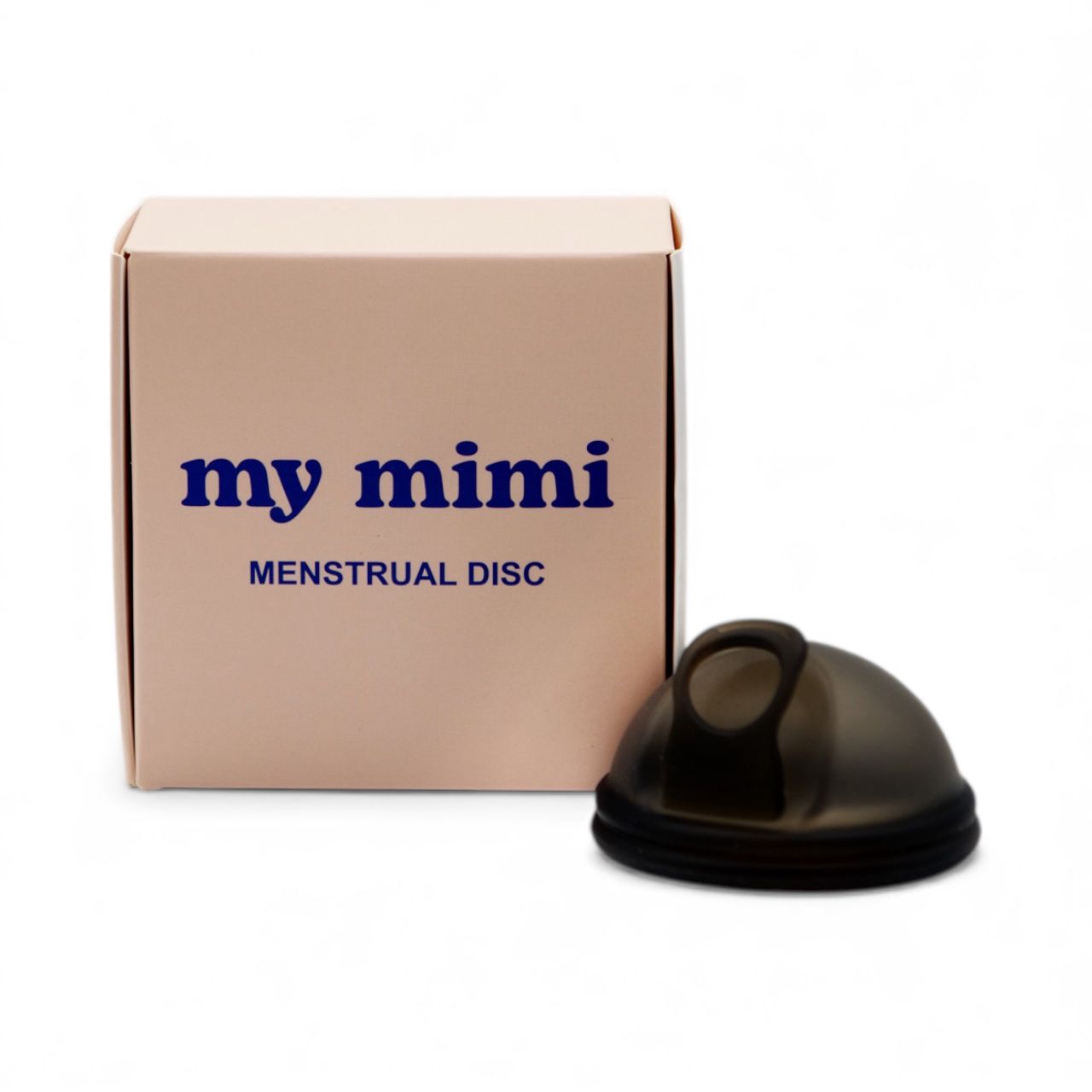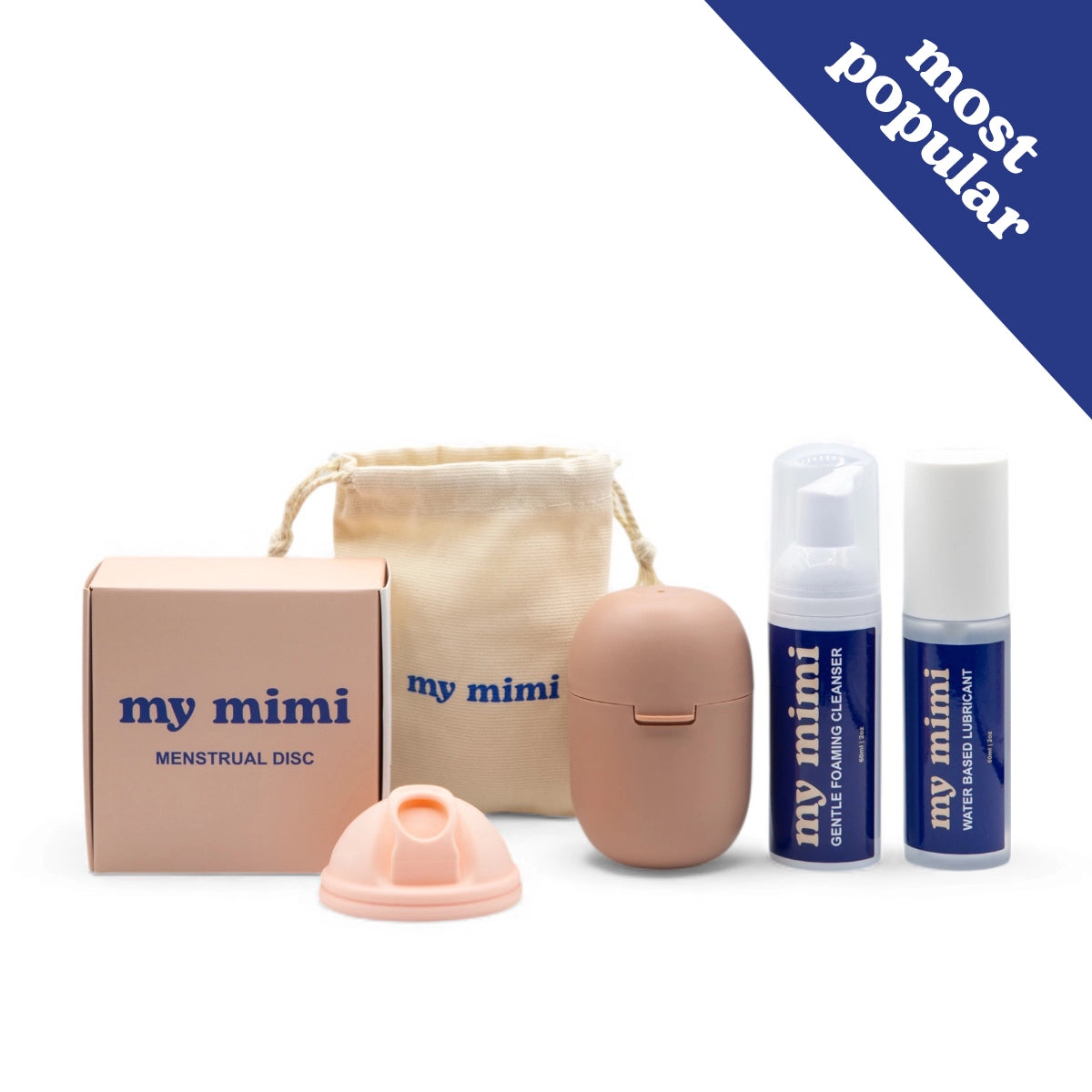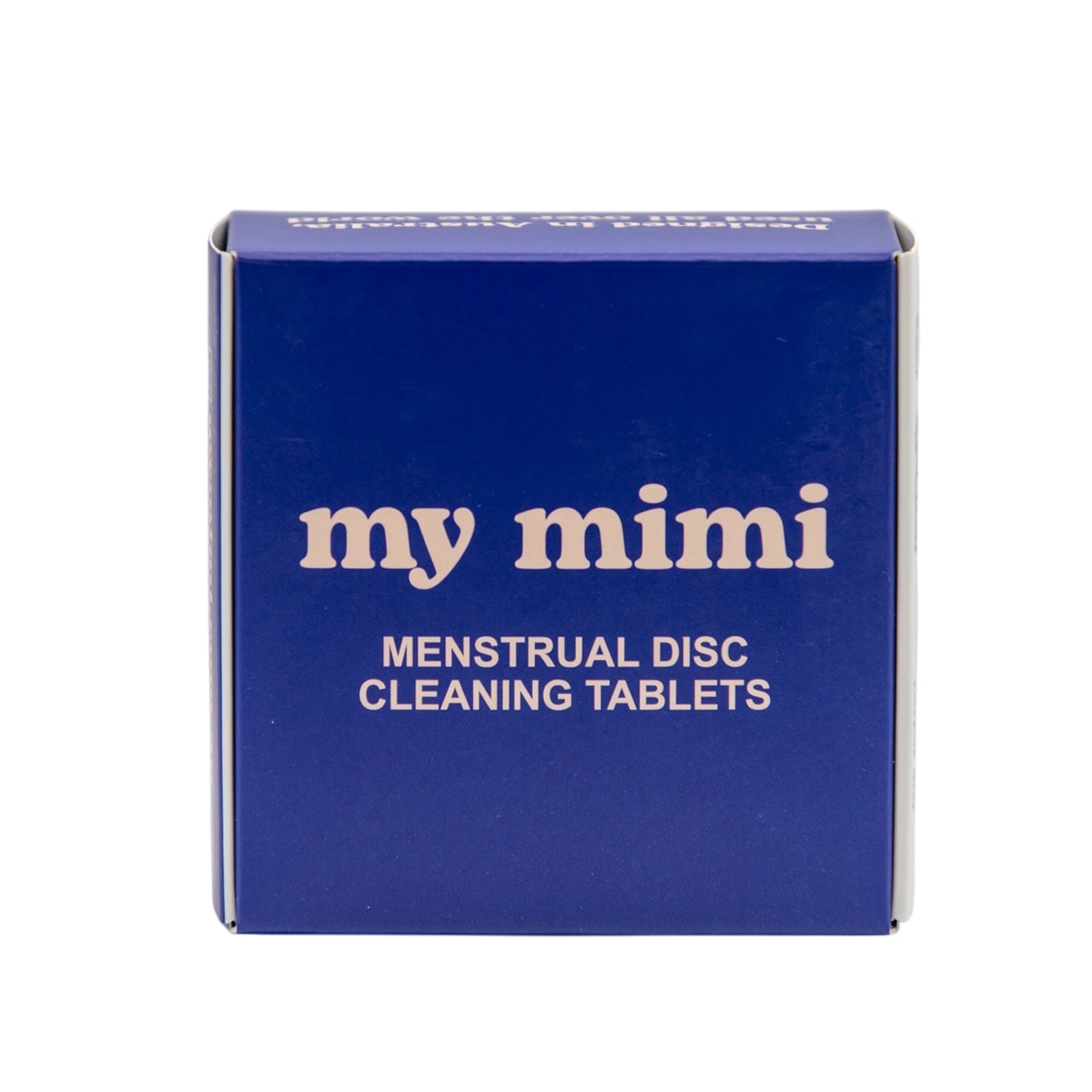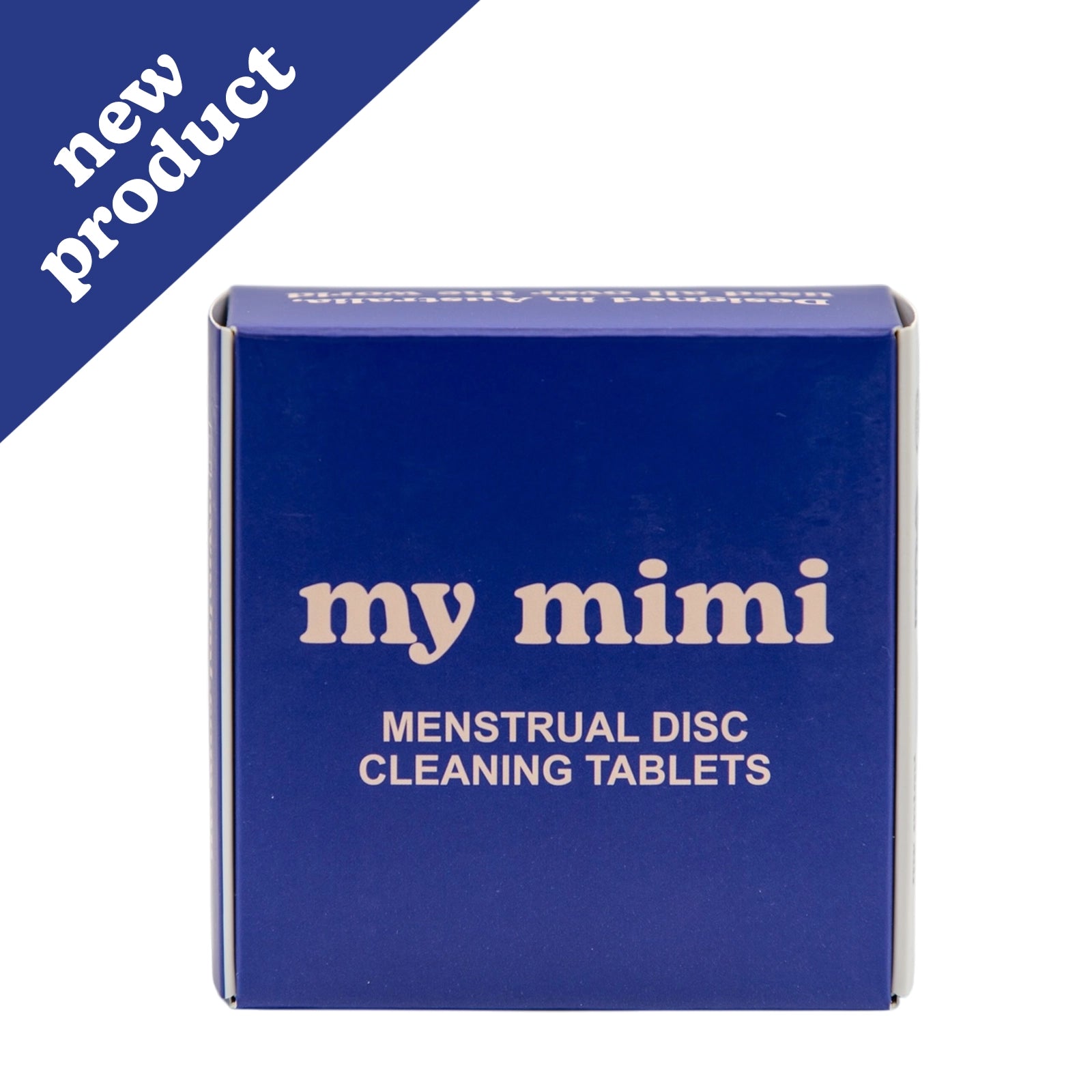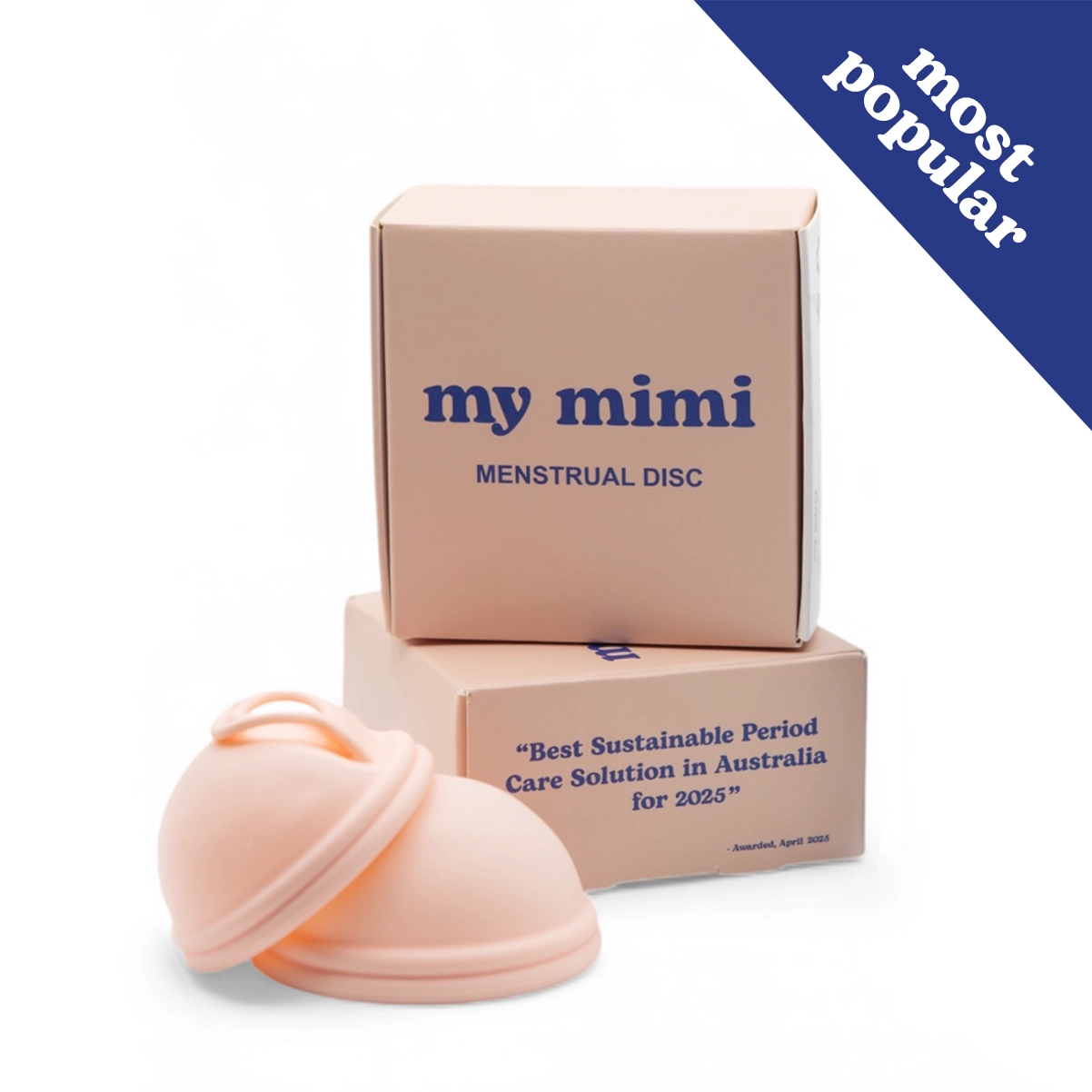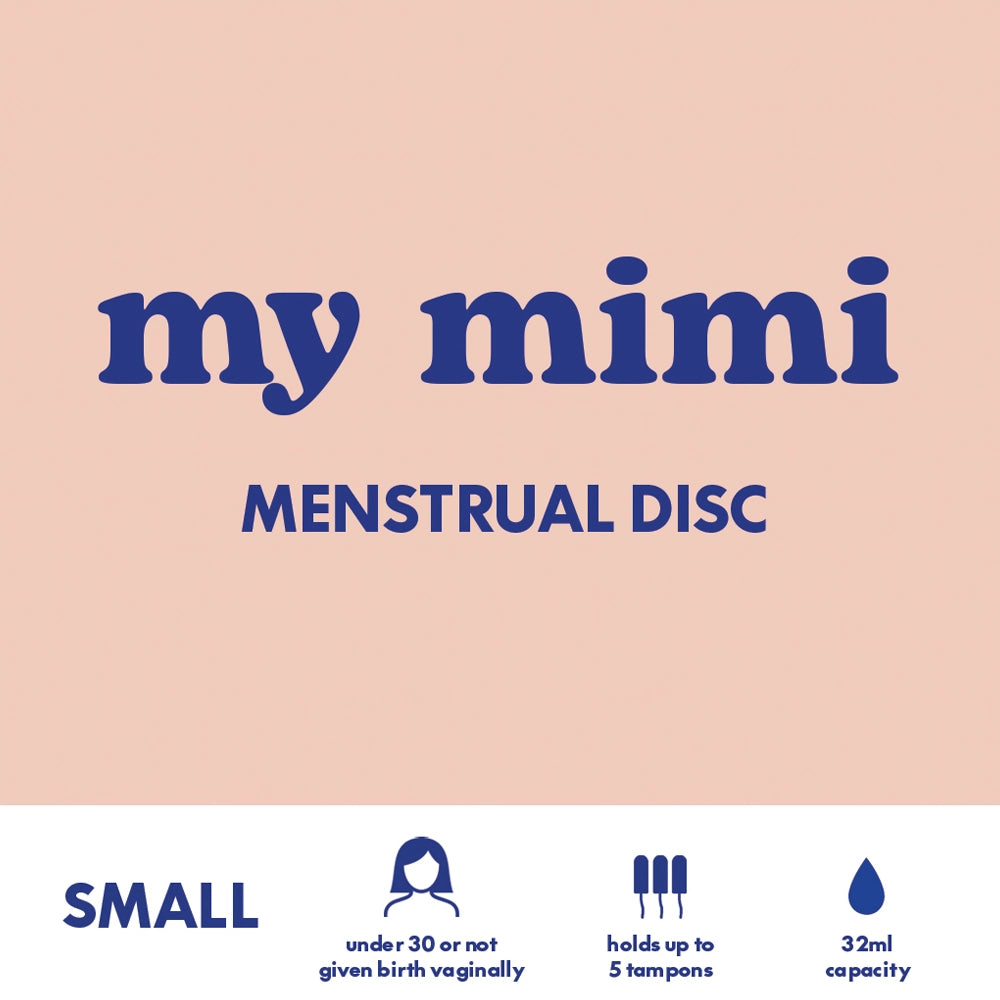Menstrual Disc Recycling & End-of-Life Guide
Date Created: 31st of August 2025
Read Time: 5 minutes
Every year, over 20 billion pads and tampons are discarded globally and most end up in landfill or waterways (National Geographic). These single-use items take hundreds of years to break down, leaving behind harmful microplastics. A reusable menstrual disc, by comparison, can last up to five years and significantly reduce waste.
But what happens when your disc reaches the end of its lifespan? This guide explores how to dispose of or recycle a disc responsibly, and how my mimi supports eco-conscious choices.
How long does a menstrual disc last?
A reusable menstrual disc is built for durability. When cared for correctly, it can last up to five years, which works out to just 83 cents per month. Over that time, it can replace around 1,200 disposable pads or tampons.
The my mimi disc is made from medical-grade silicone, safe for the body and designed to withstand repeated cleaning. It is available in two sizes and includes a loop tab for easy removal. If you notice cracks, a change in texture, or odour that remains after cleaning, it is time to consider replacing it.
Recycling menstrual discs
Silicone is recyclable, but it cannot go into standard household recycling bins. Instead, there are a few options:
- Specialist recycling programs: Some councils or eco-collection services accept silicone items, including medical-grade products.
- Take-back schemes: Certain reusable brands and eco-stores have recycling drop-off points.
- Terracycle and similar services: These programs process hard-to-recycle materials, ensuring they are diverted from landfill.
Before disposal, check with your local council or sustainability centre.
Eco-friendly disposal options
If recycling services are not available where you live, there are still responsible options:
- General waste, knowing your disc has already prevented years of disposable waste.
- Energy recovery programs, where waste is converted into usable fuel.
- Repurposing the disc for non-medical use, such as craft projects, before disposal.
Even if a disc does end up in landfill, the waste is a fraction compared to disposables.
Caring for your disc to extend its life
Proper care ensures your disc lasts as long as possible before replacement:
- Clean with a mild cleanser and water. Read more on how to clean your menstrual disc.
- Sterilise between cycles with boiling water or a UV steriliser.
- Avoid harsh chemicals or abrasive brushes.
- Store in a breathable pouch.
These steps help maintain comfort and safety while extending product life.
Why sustainability matters
A person using disposables contributes up to 200 kilograms of menstrual waste in a lifetime. Around half of that waste contains plastics that do not biodegrade. Switching to a disc cuts down both landfill volume and plastic waste.
You can learn more about the environmental benefits in the sustainability guide.
What makes my mimi different
my mimi, awarded Best Sustainable Period Care Solution in Australia 2025, goes beyond just selling a product. The disc is designed with thoughtful features:
- Two sizes to suit different body types.
- A loop tab for easier menstrual disc removal.
- High capacity for heavy flow days.
- Trusted by thousands of Australians.
This makes my mimi both eco-friendly and practical for daily use. You can see why it’s rated among the best menstrual discs in Australia.
Replacing your disc
When your disc reaches the end of its lifespan, replacing it is simple and affordable. You can buy a menstrual disc online directly from my mimi, ensuring you receive a safe, high-quality product.
Starting fresh with a new disc continues your journey towards sustainable period care, while keeping comfort, safety, and value at the centre.
Health Notice: This article is for information purposes only. It is not a substitute for medical advice. If you are experiencing symptoms of anxiety, depression or other mental health concerns, consult a qualified health professional.



